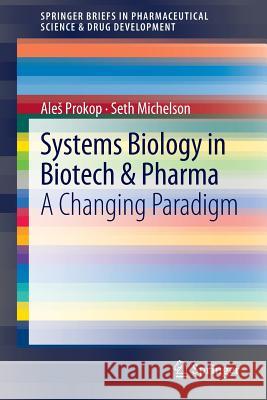Systems Biology in Biotech & Pharma: A Changing Paradigm » książka
Systems Biology in Biotech & Pharma: A Changing Paradigm
ISBN-13: 9789400728486 / Angielski / Miękka / 2012 / 127 str.
Systems Biology (SB) is a suite of technologies and methodologies that resulted, conceptually from the merging of two basic paradigms, reductionism and holism with the goal of identifying its emergent properties and defining, quantitatively, molecular, cellular, tissue, organ and whole body processes. One manifestation of SB is as a tool for hypothesis generation about a system that is typically too large and complex to understand by simple reasoning.The US is currently well ahead of the rest of the world in the development and application of SB and its principles especially as they pertain to basic medical research and development.This lead is largely due to its earlier start in the academic arena. However, there is evidence of rapid development in both the UK/EU and Japan, and the gap is narrowing, particularly in the UK. From an industrial point of view, the Pharmaceutical Industry based in the US and UK can capitalize on these opportunities and gain the benefits of this technology. Many educational institutions (particularly their medical divisions) at present are heavily business-oriented, realize that in this particular industrial environment, that every dollar counts.This book intends to educate Cell and Molecular Biologists in the use of the quantitative tools that are available to them to help solve the critical problems they face. It is important that biologists recognize early in their research the use and benefits of SB and how this approach can help to generate new therapeutic leads and substances useful for human health. Educational curricula in the life sciences have typically been based on the belief that one can dissect complex systems into their components and that a detailed investigation of each these components individually will in itself lead to novel biological insights, and indeed this is true in numerous instances. However, increasing acknowledgment of the importance of studying whole systems, as well as their components, has led to an emphasis on teaching not just a reductionist view of biology, but also a complementary constructionist view. "











